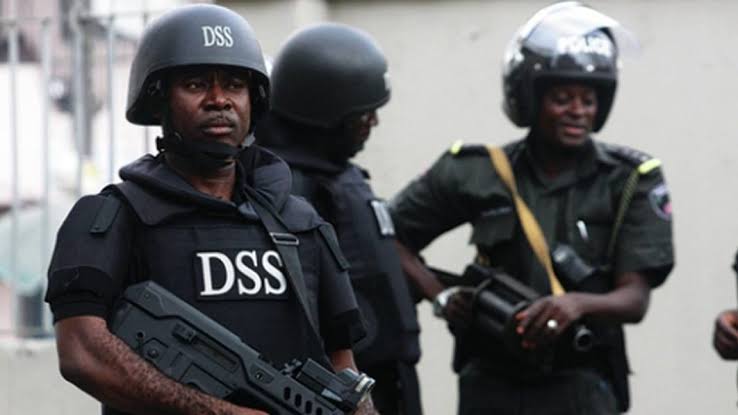The Director-General of the Department of State Services (DSS), Mr. Oluwatosin Ajayi, has called for a policy that mandates the recruitment of first-class graduates into the intelligence agency to enhance national security.
Ajayi made this appeal during the 2025 Distinguished Personality Lecture at the Centre for Peace and Strategic Studies, University of Ilorin, Kwara State. Delivering a lecture titled “The Roles of the DSS in Security, Peacekeeping, and National Integration,” he emphasized the importance of enlisting top-tier intellectuals into security agencies to tackle sophisticated criminal networks.
Represented by DSS Deputy Director, Mr. Patrick Ikenweiwe, the DG suggested that Nigeria adopt a recruitment model similar to Israel’s selective university admission process, where high academic achievers are identified and absorbed into crucial national roles.
Ajayi stressed that intelligence work demands sharp intellect and strategic thinking, questioning how underqualified individuals could effectively combat crime.
“Tell me how would a ‘Dundee’ be able to keep security in a criminal gang that is constituted of First Class people? You know, it takes intellect to track criminality.”
“So, if I have my way in this country, and we keep praying that we do the right thing, the academia should be able to supply us, sincerely, the details of students who have excelled in their various fields of study so that they would be forced to serve this great nation,” he said.” he stated.
He also pointed out the challenges posed by public mistrust of security agencies, noting that many Nigerians perceive them as adversaries rather than allies, which hampers intelligence gathering and peacebuilding efforts.
Ikenweiwe highlighted the evolving nature of security threats, stating that traditional concerns such as sabotage and espionage have expanded to include terrorism, insurgency, cybercrime, separatist movements, and economic sabotage.
He reaffirmed the DSS’s commitment to addressing these challenges through collaboration with other security agencies and continuous stakeholder engagement. He also outlined the agency’s core mandates, as outlined in the NSA Act CAP N74 LFN 2024 and the SSS Instrument No. 1 of 1999.
This explains that the DSS is legally empowered to prevent and detect crimes against Nigeria’s internal security, protect classified national security matters, and advise the government on security threats.
He further noted that the DSS has been instrumental in providing specialized training to security personnel from Nigeria and other nations, strengthening its role in national and regional security.
Meanwhile, in a related development, First Lady Oluremi Tinubu received a delegation from the DSS, led by Deputy Director-General Mrs. Afolashade Adekayaoja, at the State House in Abuja.
Tinubu praised the appointment of a woman to a high-ranking position within the DSS, describing it as a reflection of President Bola Tinubu’s commitment to gender inclusivity.
“Women who have demonstrated competence deserve leadership positions. This appointment reaffirms my husband’s belief in women’s ability to lead with responsibility and dedication,” she said.
She urged female officers within the DSS to support one another and serve as role models for future generations.
In response, Adekayaoja expressed appreciation for the administration’s efforts in promoting gender inclusion and reiterated the DSS’s dedication to safeguarding national security.
With the push for mandatory recruitment of top academic talents into the intelligence sector, the DSS aims to bolster its operational effectiveness in addressing emerging security threats and fostering national peace and stability.


